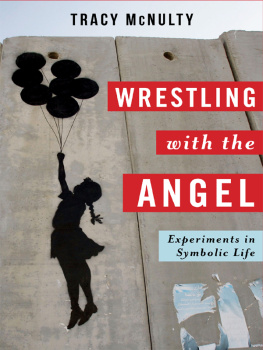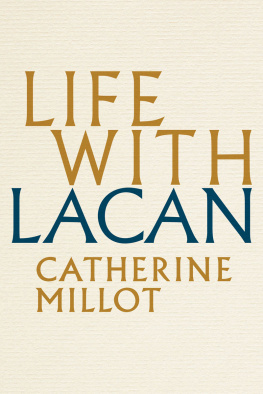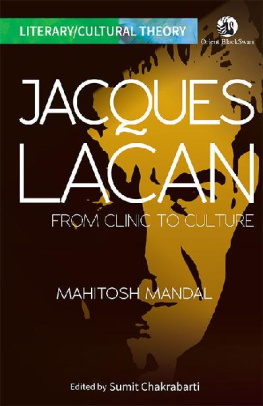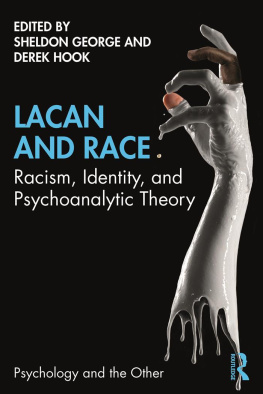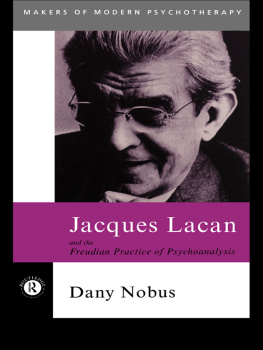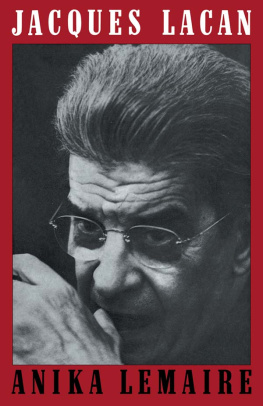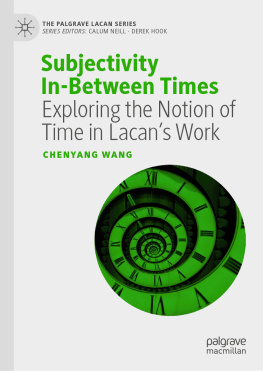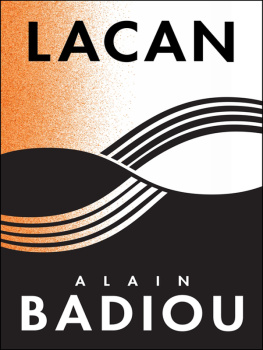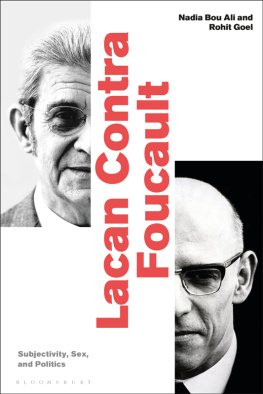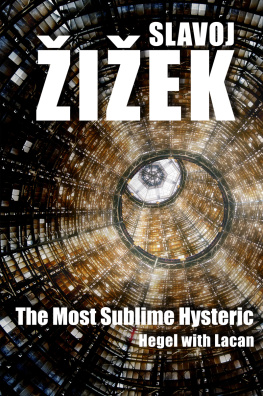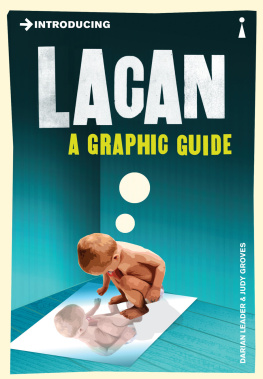THE ANTI-OEDIPUS COMPLEX
The Anti-Oedipus Complex critically explores the post-68 dramatic developments in Freudo-Lacanian psychoanalysis and cultural theory. Beginning with the decline of patriarchy and the master, exemplified by Freuds paean for the Father, the revolutionary path was blown wide open by anti-psychiatry, schizoanalysis and radical politics, the complex antinomies of which are traced here in detail with the help of philosophers, such as Nietzsche, Baudrillard, Levinas, Steiner, iek, Badiou, Derrida and Girard, as well as theologians, analysts, writers, musicians and film makers.
In this book, Rob Weatherill, starting from the clinic, considers the end of hierarchies, the loss of the Other, new subjectivities, so-called creative destruction, the power of negative thinking, revolutionary action, divine violence and new forms of extreme control. Where does this leave the psychoanalytic clinic adrift in postmodern indifference? Does the engagement of the Radical Orthodoxy movement offer some hope? Or should we re-situate psychoanalysis within a genealogy of responsibility (Patoka/Derrida) as it emerges out of the sacred demonic, via Plato and Christianity?
The Anti-Oedipus Complex will be of interest to psychoanalysts, psychotherapists, counsellors, social workers and scholars in critical theory, philosophy, cultural theory, literary theory and theology.
Rob Weatherill is a practising and supervisory psychoanalyst in private practice in Dublin. He has been a lecturer on psychoanalysis and taught psychoanalytic theory and practice in University College Dublin, Trinity College Dublin and the Milltown Institute of Philosophy and Theology. He has written several books and over thirty papers and articles in journals and other media, in Ireland and abroad.
THE ANTI-OEDIPUS
COMPLEX
Lacan, Critical Theory
and Postmodernism
Rob Weatherill

First published 2017
by Routledge
2 Park Square, Milton Park, Abingdon, Oxon OX14 4RN
and by Routledge
711 Third Avenue, New York, NY 10017
Routledge is an imprint of the Taylor & Francis Group, an informa business
2017 Rob Weatherill
The right of Rob Weatherill to be identified as author of this work has been asserted by him in accordance with sections 77 and 78 of the Copyright, Designs and Patents Act 1988.
All rights reserved. No part of this book may be reprinted or reproduced or utilised in any form or by any electronic, mechanical, or other means, now known or hereafter invented, including photocopying and recording, or in any information storage or retrieval system, without permission in writing from the publishers.
Trademark notice: Product or corporate names may be trademarks or registered trademarks, and are used only for identification and explanation without intent to infringe.
British Library Cataloguing in Publication Data
A catalogue record for this book is available from the British Library
Library of Congress Cataloguing in Publication Data
Names: Weatherill, Rob, author.Title: The anti-Oedipus complex: Lacan, critical theory
and postmodernism / Rob Weatherill. Description: 1 Edition. | New York: Routledge, 2017. |
Includes bibliographical references and index. Identifiers: LCCN 2016033707|
ISBN 9781138692343 (hardback) | ISBN 9781138692350 (pbk.) | ISBN 9781315532493 (ebook)
Subjects: LCSH: Oedipus complex. | Psychoanalysis. | Critical theory. | Lacan, Jacques, 1901-1981.
Classification: LCC BF175.5.O33 W43 2017 | DDC 150.19/5dc23LC record available at https://lccn.loc.gov/2016033707
ISBN: 978-1-138-69234-3 (hbk)
ISBN: 978-1-138-69235-0 (pbk)
ISBN: 978-1-315-53249-3 (ebk)
Typeset in Bembo
by Out of House Publishing
The subject, Descartes cogito, Kants transcendental subject, now lies exposed to the drive per se; to affects potentially, raw anxiety, panic and horror. As suggested, all human suffering rests in this void of the pure subject. In this gap between the pre-Symbolic Real of the biological machinery of emotion and the Symbolised feelings of the autobiographical self lie everything that must be defended in this work: the sense of the tragic, the melancholic, and so on, followed by the critical necessity for the elaboration of language (the treasure house of signifiers) qua containing and subjectivising of affect, the telling of dreams, stories, narratives, etc. All the contemporary emancipatory signs point in the reverse direction, towards core unmediated machinic experience paroxysms of sex, convulsions of violence and the death drive.
CONTENTS
These are strange times. If you are on the Left you believe that ecological catastrophe is already upon us. If you are on the Right, you understand the world as threatened by religious warriors, Jihadists, like those that greeted the new century with their spectacular on the World Trade Center, in which they killed 3,000 people, but openly admit that they would have preferred a multiple of that. Levels of catastrophic anxiety are high. In 1915 the late Italian self-styled seismologist Raffaele Bendandi predicted that an earthquake, the big one, would strike Rome on 11 May 2011. As the date neared, panic spread across social media. Many Italians fled Rome amid fears of a catastrophe despite reassurances from seismologists and political leaders. Ironically, an earthquake struck Spain instead.
Strange times and apocalyptic times on many levels ecological, financial, social, techno-digital, racial and so on. We are more than ready to believe in and anticipate catastrophic events, all part of the chaos and non-linearity of postmodernity. Apocalyptic time was preceded by the linear time of modernity, where one advance leads to another, or one breakthrough leads to another, until now, the zero-point of break-down, flux and fibrillation. Prior to modernity and progress, there was cyclical time reflecting the rhythms of nature and the seasons when nothing much changed over time.
Psychoanalysis was central to modernity, and with modernitys passing, the end of psychoanalysis has been signalled many times, by the usual suspects. which describes a history of political and civilian repression by Communist countries, including genocides, extrajudicial executions, deportations and artificial famines.
Although psychoanalysis was quite unlike Marxism, which in the guise of Communism has been responsible for crimes against humanity, both have been overtaken by postmodernist mixing, levelling and neutralisation. Big ideas now have constantly to reinvent themselves. As far as psychoanalysis is concerned, we must commend Lacan and the Lacanians in this respect.
Still interesting and evolving are the varied theoretical approaches within psychoanalysis, representing a sophisticated theory of human subjectivity, offering a practical philosophy to facilitate reflection and orientation. It stands as the only real alternative to reductionist psychiatric biological approaches to human suffering that take no account of the Real of human subjectivity. The alarming thing now is that people have no time for critical self-reflection and see no point in it. We are losing this way of understanding ourselves.
Freud pointed to three key narcissistic conceits: 1) We are (not) the centre of the universe (Copernicus); 2) We are (not) superior beings (Darwin) set apart from animals; 3) We are (not) masters of ourselves because of the unconscious (Freud). Our self-mastery is further undermined in a number of ways. We are the product of historical forces and economic determinism (Marx). The product of an impersonal will to power (Nietzsche). We are passive vehicles for selfish gene propagation (Dawkins). At the bio-genetic level, the mind and cognitive processes function like a complex computer (Moravec, Kurzweil). Self-consciousness is exposed as user illusion (Nrretranders). Structuralism implies that language has no need of us (Saussure). Extreme pleasure,
Next page

